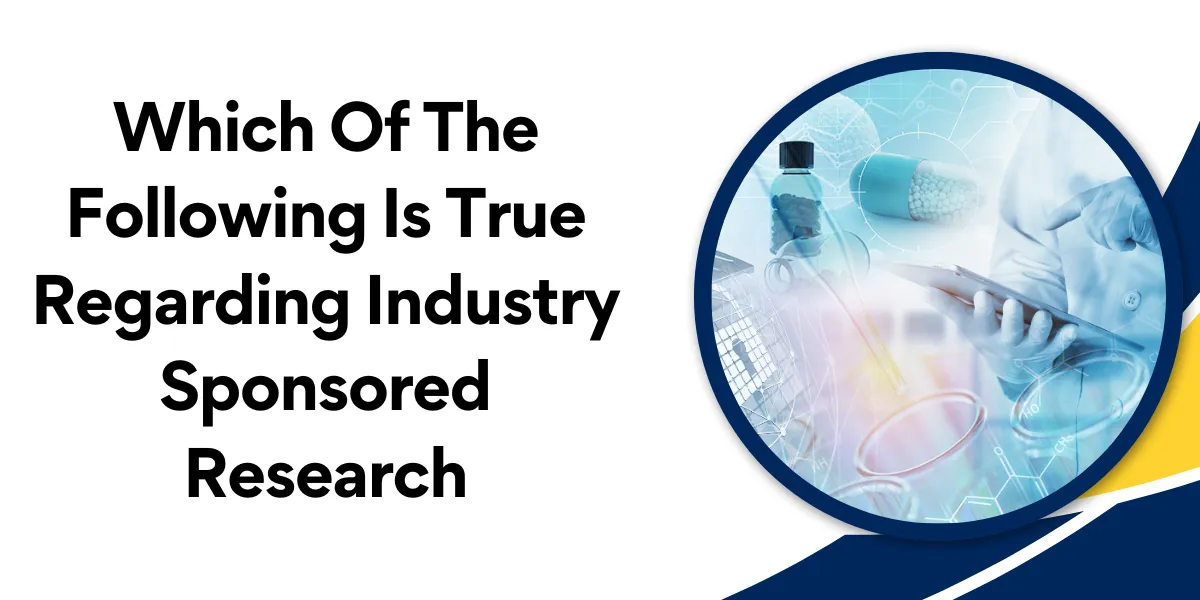Industry sponsored research has become a pivotal aspect of modern innovation and development. As companies seek to push the boundaries of their sectors, partnerships between businesses and research institutions are becoming increasingly common. In this article, we delve into the fundamental aspects of industry sponsored research, shedding light on its importance, benefits, potential drawbacks, and real-world examples.
Understanding Industry Sponsored Research
Industry sponsored research refers to collaborative endeavors between private businesses and academic or research institutions. These partnerships aim to advance scientific knowledge, technology, and practices within a specific industry. Financial support from the industry enables researchers to conduct studies, experiments, and investigations that might not be feasible through traditional funding sources.
Benefits of Industry Sponsored Research
- Financial Support and Resources: Industry sponsored research provides researchers with the necessary funds, equipment, and resources to conduct in-depth studies. This enables them to tackle complex challenges and explore innovative solutions.
- Real-World Applications: Collaborating with industries ensures that research outcomes are relevant and applicable to practical problems faced by the sector. This can lead to the development of cutting-edge products, processes, and technologies.
- Knowledge Transfer: Industry partnerships facilitate the exchange of knowledge between academia and businesses. Researchers gain insights into real-world challenges, while industry experts benefit from the latest academic advancements.
- Career Opportunities: Collaborations can create opportunities for researchers to engage in projects with direct industrial impact, potentially leading to job offers, internships, and consulting roles.
Potential Drawbacks and Ethical Considerations
- Bias and Independence: Industry sponsorship might raise concerns about biased research outcomes that favor the sponsor’s interests. Ensuring research independence and transparency becomes crucial to maintaining scientific integrity.
- Publication Restrictions: Some industry agreements could restrict researchers from publishing their findings freely, leading to limited dissemination of knowledge within the academic community.
- Intellectual Property Issues: Disputes over intellectual property rights can arise when industry partners seek to capitalize on research outcomes for commercial gain.
True Insights: Emirates Industrial Gases & Abu Mansoor Plastic Factory
An illustrative example of industry sponsored research can be observed through the partnership between Emirates Industrial Gases and Abu Mansoor Plastic Factory. These two entities collaborated to enhance the production of plastic materials while minimizing the environmental impact.
Emirates Industrial Gases provided financial support to Abu Mansoor Plastic Factory‘s research initiatives. This collaboration aimed to develop innovative methods for recycling plastics and creating more sustainable plastic products. Researchers from academic institutions worked alongside industry experts to explore efficient recycling techniques, leading to the creation of a novel process that significantly reduced plastic waste.
Industry sponsored research stands as a testament to the symbiotic relationship between academia and businesses. It fuels innovation, drives economic growth, and addresses pressing challenges. While challenges related to bias, publication, and intellectual property persist, they can be mitigated through transparent agreements and ethical considerations.
The collaboration between Emirates Industrial Gases and Abu Mansoor Plastic Factory exemplifies the potential of industry-academia partnerships in fostering positive change within sectors and the wider community.









